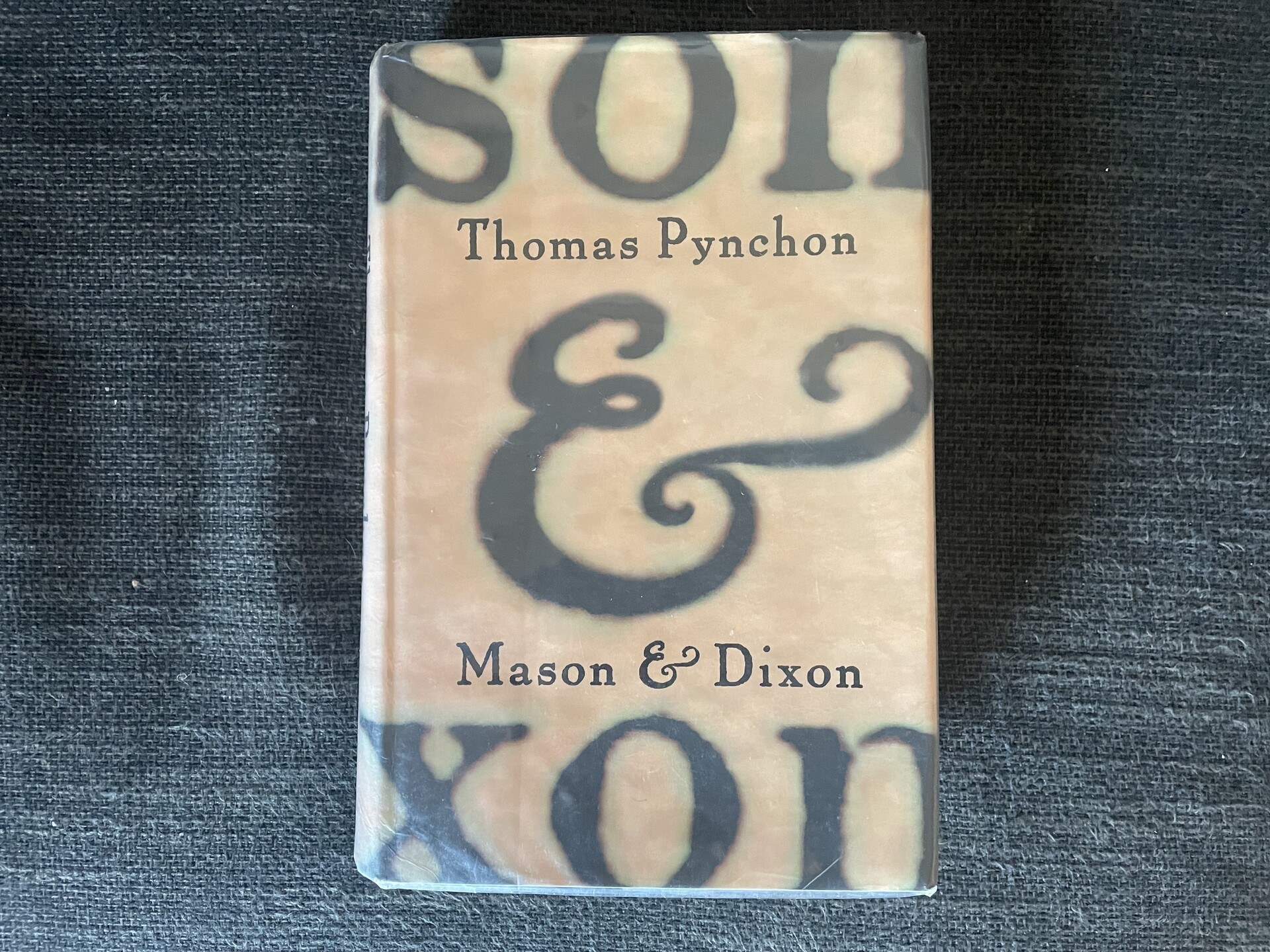Mason & Dixon
by Thomas Pynchon
Published 1997 773 pages
Pynchon's Mason & Dixon is a book in which many things happen, but in which a Plot nevertheless fails to really materialise. That's not a bad thing—this, like the other Pynchon novels I've read, is, for all its lack of Plot, a satisfying and entertaining portrait of American psychosis.
To say that it's the story of Charles Mason and Jeremiah Dixon surveying their eponymous line demarcating Maryland from Pennsylvania is to do the reader a bit of a disservice. The historical basis is just stage dressing. Written in a late-1700s-style of English, the book is about travelling to the limns of society and exploring all of the weird and wonderful stuff occurring there, out in the American backcountry.
Also like the other Pynchon novels I've read, it defies easy explanation; but also also like the other Pynchon novels I've read, it does wonderful stuff with language. From a scene in which Mason and Dixon steal a bathtub (and during which Dixon leaves Mason stranded beneath it, perfectly balanced upright, to Dally with the lady of the house):
After they are join'd by Dixon, emerging coprophagiously a-grim from some false Panel in a Wall, exeunt the Premises, bring along the Tub.
They shortly use the tub as a portable aquarium for an electric eel that always points north, and which they come to employ as a compass in their surveying work. This is the sort of fare on offer here.
Elsewhere in the novel: a feng shui master joining the party on the Line; a Swedish axman of dubious provenance; a Learnèd English Dog, who speaks English (in fact, all dogs do); a mechanical duck that transcends physics; a farm of enormous vegetables. Surveying the Line, is less a plot device than a pretext for Pynchon to spiral off into fantastic tangents exploring wonky early Americanism.
The final chapters of the novel are perhaps the most touching, though, as Mason and Dixon, in later years, acknowledge, in some wise, how important they are to each other. Their annual meetings, in the North East of England (just down the road from where I live!), are ample payoff for the emotional weight of the adventures they've had together. It grounds them both as people. I wish there'd been a bit more of that sort of thing throughout the novel, rather than just hijink after hijink.
Finally: this is a long book. It's not the longest I've ever read, but it sure feels like it. Dos Passos's U.S.A., which I read earlier this year, may have felt longer. But the language made it, in chronological terms, take much longer than it might have otherwise. I don't think that's a complaint. If I were to disappear to a cabin in the woods for a while, and if I were only allowed to bring one book: this one'd be a candidate.
Next
I got a chance to see (from the outside) the place that Jeremiah Dixon, eponymous of the book I just read, is buried.
Previous
The intellectual rights to Japanese national treasure Classy Bear have apparently been sold to Ralph Lauren.